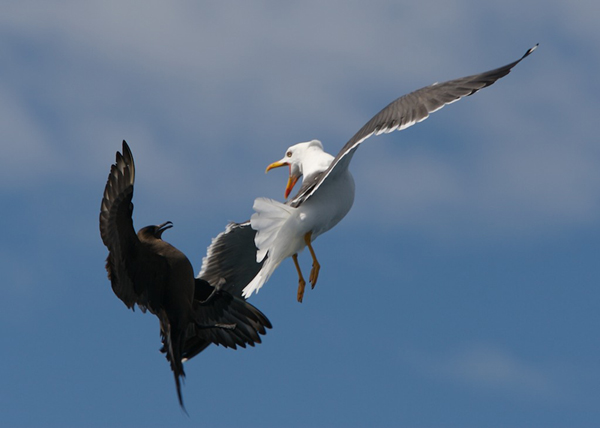Sailing twitchers asked to boost a citizen science project
The Ocean Cruising Club have joined forces with SeaBC to encourage sailors to record and report sea bird sightings.
The SeaBC Sea Bird Count is a citizen science project organized by a volunteer group of nine long-distance birding sailors from around the world.
Project Goals:
- To benefit seabird conservation by mobilizing the worldwide boating community to document ocean bird sightings.
- Provide critical and seldom-recorded data on seabird abundance and distribution, as well as on ocean migration routes.
- Educate mariners about seabirds and their conservation.
- Contribute to established projects such as Audubon’s CBC and Cornell University’s eBird database (www.ebird.org), where boaters’ sightings become a resource for scientists worldwide.
A frontier science
Seabird knowledge is described as a frontier science. New species are still being discovered. Species believed to be extinct are being re-sighted.
BirdLife International estimates one-third of seabirds are now vulnerable or globally endangered due to threats from predators on nesting grounds, some fisheries practices, and marine pollution such as plastics.
Conservation efforts first require understanding. In the case of seabirds, study has traditionally focused on breeding grounds where the birds are easiest to study.
Yet seabirds spend most of their life at sea, and the difficult logistics have curtailed understanding of all aspects of their life history. Hence the role of citizen scientists, in this case boaters who cruise offshore or along the coast.
Sailing twitchers
John Franklin, Commodore of the Ocean Cruising Club, said: ‘It’s a logical activity for OCC members to take part in.
‘Our members tend to be adventurous in long-distance cruising, often going places where others may not venture, like Greenland and Antarctica.
‘They observe nature as it is, and this is one way that their observations can contribute to a larger body of knowledge.’
He added:’Three of the founding advisors of SeaBC are prominent OCC members, Beth Leonard, Jeanne Socrates and Dorothy Wadlow.
‘As an organisation, we are very pleased to support this effort.”
Social media resources
SeaBC Founder and yachtswoman Diana Doyle urged boaters to take digital photos of seabirds and upload them, along with the location of the sighting, onto the ‘Birding Aboard’ Facebook page.
She added: ‘Participants do not need to be ‘seabird experts’ or knowledgeable about seabirds.
‘We have set up an online Facebook forum and work with a designated eBird seabird reviewer for identification help and to ensure the validity of the data.
‘OCC members can make a huge contribution simply by photographing seabirds and recording the latitude and longitude.’
With budget cutbacks leaving research vessels with less sea-time-and concern about recent shifts in the ocean’s ecology, the contribution sailors can make is all the more important.
Photo: An arctic skua attacks a lesser black-backed gull. Credit: C. Speedie/Wave Action




